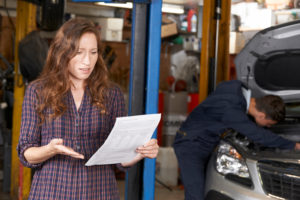
Calif. Autobody Assoc.: Insurer is not the body shop’s customer
By onAssociations | Business Practices | Education | Insurance | Legal | Repair Operations
The California Autobody Association on Thursday reminded auto body shops that the Bureau of Automotive Repair will not view an insurer as the customer when it comes time to regulate the shop.
It’s a good refresher not just for arguably the auto body repair sector’s most important market but perhaps for the industry at large.
If you think the insurer is your customer, perhaps you might wish to take another look at your own state law or court precedent. Generally, the vehicle owner is the one who contracted the shop’s services and who owes the shop for the bill. They’re the customer. The insurer’s job is just to reimburse that customer within the scope of the first-party or third-party insurance contract.
California might just spell it out more clearly than your state. California Businesses and Professions Code 9880.1 explicitly says the insurer isn’t an automotive repairer’s customer.
(f) “Customer” means the person presenting a motor vehicle for repair and authorizing the repairs to that motor vehicle. “Customer” shall not mean the automotive repair dealer providing the repair services or an insurer involved in a claim that includes the motor vehicle being repaired or an employee or agent or a person acting on behalf of the dealer or insurer.
“An insurance company can never be a customer,” BAR operations branch program manager Matthew Gibson told a VeriFacts Guild 21 call last month. “… They’re excluded.”
The customer is the owner of the vehicle or the person who brought it in for repair, he said.
California Autobody Association lobbyist Jack Molodanof (Molodanof Government Partners) noted during a CAA webinar Thursday this was something collision repairers “completely don’t understand sometimes. …
“The next thing you know, they think the insurance company is the customer. They are not the customer.”
The law was “pretty clear” about the identity of the customer, he said.
Insurers are also not licensed to repair vehicles, and the BAR doesn’t have jurisdiction over carriers, Molodanof said.
“They care about you,” Molodanof told the collision repair audience.
If the BAR comes calling, protesting “‘The insurance company told me this'” won’t help a shop, according to Molodanof.
“They don’t care,” he said of the BAR. “… You are the doctor.”
Understanding which party is actually the shop’s customer might also help repairers avoid another potentially pitfall with the BAR: Failing to secure authorization.
This lack of authorization is one of the top complaints handled by the BAR, according to Molodanof. Repairers get “sloppy” or fail to seek authorization because they know an insurer will cover the cost of the work. But the customer must first have signed off on the repairs regardless.
“That’s a big problem,” Molodanof said. It’s also a “red flag.”
He said that even if the repairer is performing warranty or bring-back work, “you still need to get authorization” in California. Authorization is required even if the work will be done for free, he said. It’s also required for any revisions to the estimate (supplements), he said.
More information:
Bureau of Automotive Repair “Write it Right”
Bureau of Automotive Repair, February 2019
Featured image: According to the California Business and Professions Code, the customer is the “person presenting a motor vehicle for repair and authorizing the repairs to that motor vehicle.” It’s not the insurer reimbursing repairs to the vehicle. (Highwaystarz-Photography/iStock)
